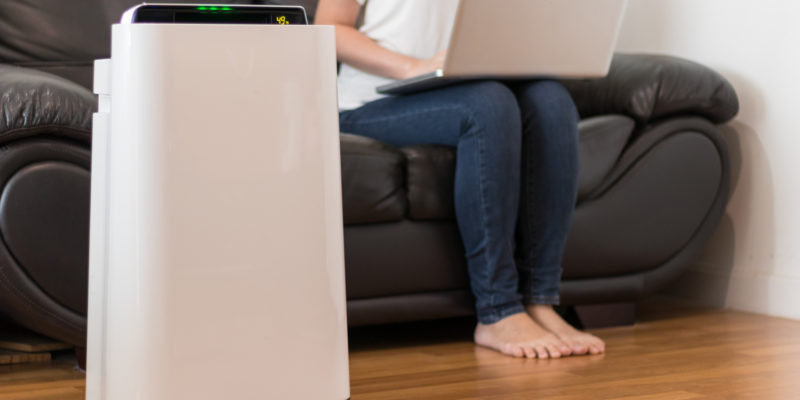While appliances like air purifiers and humidifiers can help asthma sufferers improve the quality of the air they breathe, they also come with certain disadvantages.
Read on to make a well-informed purchase decision:
Air Purifiers
Benefits:
Air purifiers eliminate pollen, dust mites, mold, and other irritants that trigger asthma attacks and significantly improve the overall purity of the air in your home. Those equipped with HEPA [high-efficiency particulate absorption] filtration systems are said to be up to 99.9 % efficient in filtering out unwanted particles.
These filtration systems can be attached to your heating and air-conditioning system or purchased as stand-alone portable room units.
Cautions:
While air filters may sometimes not make a dramatic difference to your symptoms, any gaps in your ductwork, or leaving your windows open, will lower the efficiency of an air purifier (connected to your home’s HVAC ducts).
Additionally, purifiers that use electronic filters called ionizers produce ozone, a known lung irritant. The system must be carefully maintained, with its filter elements changed regularly to be of optimum use.
Humidifiers
Benefits:
Continual use of your home heating system in winter can dry out the air in your home, causing you to experience irritation in your eyes, throat, and lungs. This problem can be tackled by the use of built-in or portable humidifiers that add moisture to the air in individual rooms or parts of your house.
Aside from providing relief to inhabitants from sore throats, nosebleeds, headaches, coughs, or other ailments, a humidifier also protects your home from undesirable effects caused by air that’s too dry, including the loosening of floorboards and furniture joints.
Cautions:
If you heat your home for a good part of the year, a humidifier will keep you a lot more comfortable. But if they aren’t cleaned regularly and thoroughly, they can spell trouble for asthma sufferers.
Undermaintained humidifiers can serve as breeding grounds for mold and bacteria, which then gets distributed throughout the air in the house, triggering an asthma attack.
It’s also important that the humidity in your home stays within recommended bounds – somewhere between 30% and 50% to discourage dust mites from thriving. If you suffer from a mold allergy, it’s best to keep the humidity below 35%. Use a hygrometer to measure the humidity in your home.
Follow the manufacturer’s instructions regarding cleaning procedures and filter changes to ensure your air purifier or a humidifier actually alleviate, and not aggravate your asthma symptoms.



















Comments